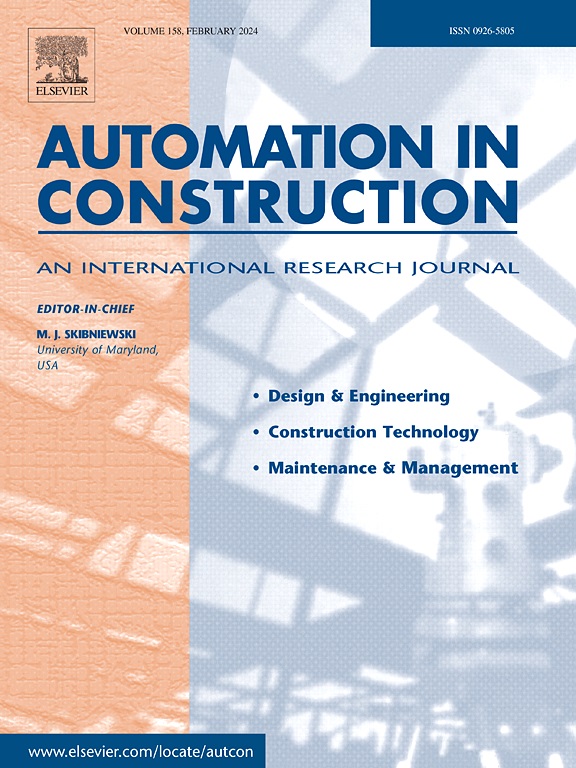Intelligent design and evaluation of tunnel support structure systems
IF 9.6
1区 工程技术
Q1 CONSTRUCTION & BUILDING TECHNOLOGY
引用次数: 0
Abstract
With the rapid development of artificial intelligence, intelligent algorithms for parameter nonlinear mapping provide a new design approach to address the long-term reliance on empirical design in tunnel engineering. This paper proposes an intelligent model for predicting support structure parameters based on tunnel background information. After comparing the characteristics of machine learning and deep learning algorithms applied in the intelligent design model, the generated model is validated using tunnel deformation indicators. The results show the overall accuracies of the machine learning CLS-PSO-SVM and deep learning HRNet algorithms used are 81.1 % and 88.5 %, respectively. Converting the maximum deformation as the only output indicator, the prediction accuracies of the vault and haunch deformations are 85.2 % and 82.8 %, respectively, verifying the reliability of the intelligent model. The research results can provide theoretical support for the intelligent design of tunnel engineering. Meanwhile, intelligent design models will develop towards finer prediction parameters in the future.
隧道支护结构系统的智能化设计与评价
随着人工智能的迅速发展,参数非线性映射的智能算法为解决隧道工程长期依赖经验设计的问题提供了新的设计途径。提出了一种基于隧道背景信息的支护结构参数智能预测模型。在比较智能设计模型中应用的机器学习和深度学习算法的特点后,使用隧道变形指标对生成的模型进行验证。结果表明,所使用的机器学习CLS-PSO-SVM和深度学习HRNet算法的总体准确率分别为81.1%和88.5%。将最大变形量作为唯一的输出指标,对拱顶和臀部变形量的预测精度分别为85.2%和82.8%,验证了智能模型的可靠性。研究成果可为隧道工程的智能化设计提供理论支持。同时,未来智能设计模型将朝着更精细的预测参数方向发展。
本文章由计算机程序翻译,如有差异,请以英文原文为准。
求助全文
约1分钟内获得全文
求助全文
来源期刊

Automation in Construction
工程技术-工程:土木
CiteScore
19.20
自引率
16.50%
发文量
563
审稿时长
8.5 months
期刊介绍:
Automation in Construction is an international journal that focuses on publishing original research papers related to the use of Information Technologies in various aspects of the construction industry. The journal covers topics such as design, engineering, construction technologies, and the maintenance and management of constructed facilities.
The scope of Automation in Construction is extensive and covers all stages of the construction life cycle. This includes initial planning and design, construction of the facility, operation and maintenance, as well as the eventual dismantling and recycling of buildings and engineering structures.
 求助内容:
求助内容: 应助结果提醒方式:
应助结果提醒方式:


